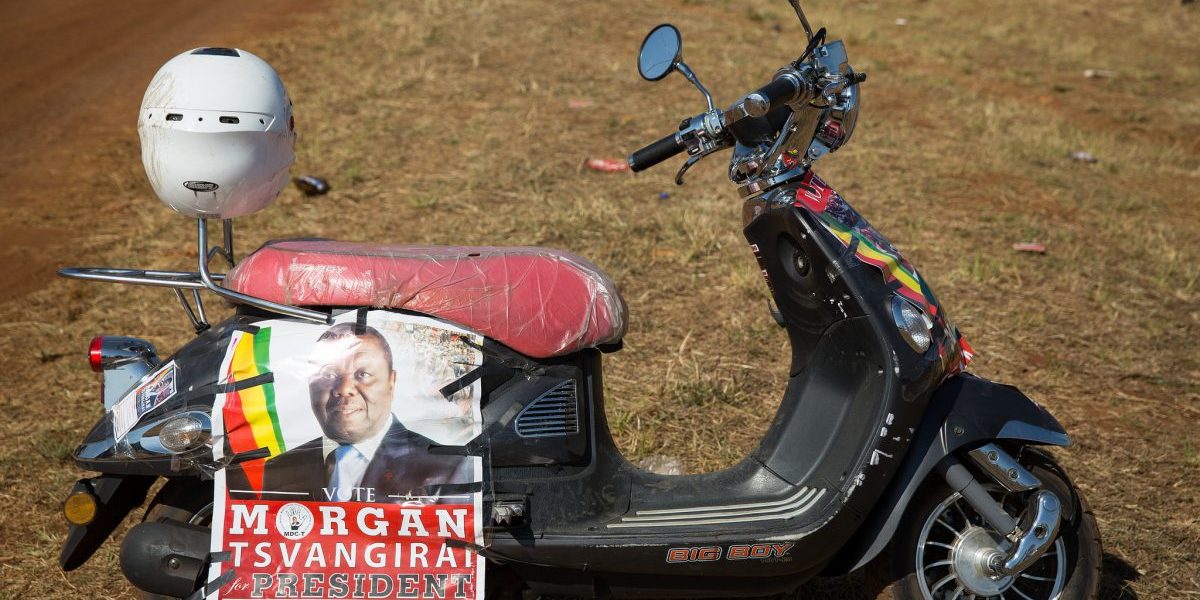But with debate about popular strategies and tactics for the 2005 parliamentary elections intensifying, the role, effectiveness and relevance of parliament is under scrutiny. Does parliament matter?
Zimbabwean opposition parties operate under two handicaps: a tyrannical legislative and security environment, and a loaded constitution that raises the threshold of victory to 76 out of 120 electoral seats, as 30 MPs are appointed by the executive.
The Movement for Democratic Change (MDC) has consequently laid down a gauntlet of sorts by setting pre-conditions for participation in next year’s electoral process. But it is certain that President Mugabe and Zanu-PF will not entertain the MDC’s demands.
Challenged to say whether parliament plays any role other than constitutionally legitimising an increasingly repressive state, some opposition MPs point to the space the institution still affords for open and free debate, for questions, motions, protests, petitions and to hold the executive to account. Indeed since 1997 the Zimbabwe Parliament has undergone a series of progressive reforms that have improved the functioning of the institution as well as public engagement with it. These include establishment of parliamentary constituency information centres, a parliamentary outreach programme and proposals to include governance as part of the school curriculum.
Since 2000, parliamentary portfolio committee meetings have been open to the public and the cynical practice of fast-tracking bills through parliament without adequate public hearings, debate and committee review has been curtailed.
Furthermore, fissures within the Zanu-PF parliamentary caucus have occasionally emerged in debates within the historic chamber. One notorious occasion saw the Speaker of Parliament effectively ‘whip’ a Zanu-PF member, asking in him to clarify on ‘which side’ he was debating. In the quieter recesses of the parliamentary tea room, Zanu-PF MPs have also expressed their concerns over the immorality of repressive legislation and policies conceived in the presidency, central committee and politburo of the ruling party.
Yet while Zimbabwean parliamentary reforms are laudable, the emaciated Zimbabwean governance and civil rights horse bolted the stable years ago. Little further legislation is required by the state in its war against democracy. The Public Order and Security Act (Posa) is a political gill net that ensnares all opposition indiscriminately.
Posa demands that the police give written prior approval for all ‘political’ meetings, obliging opposition and civil society organisations to submit to the questionable arbitration of the local police commander, or to defy the law. The legislation even makes it a crime for consumers to gather to protest high food prices. Worse is to come. If passed in its current form, the Non-Governmental Organisation Bill slated to be tabled in October will become a legislative weapon of mass destruction, laying waste to civil society activism in Zimbabwe.
The MDC has now tacitly acknowledged that it cannot win the 2005 Parliamentary elections under current conditions. Furthermore, the MDC is painfully aware that wherever it contests an election, or by-election, its members and supporters are treated de facto as enemies of the state and subjected to harassment, intimidation, torture and occasionally murder.
And despite its substantial numerical presence in the Zimbabwean parliament, the MDC has been unable to amend, still less block, the passage of draconian legislation.
All of these curtailments on democratic freedom lead to the existential question: is the MDC’s continued participation in parliament perversely legitimising statutory repression? The alternatives it faces are stark: withdraw from parliament, boycott the 2005 elections, adopt violent and non-violent struggle tactics and perhaps establish a ‘government in exile’.
Should the MDC withdraw from parliament and not contest the elections, it will highlight the illegitimacy of the elections and parliament.
Before making any final decision on withdrawing from parliament and elections, the MDC needs to demonstrate its own democratic credentials and take the debate to its members and seek a fresh mandate for action. After all, in 2000 and 2002 the MDC received a substantial mandate, at great personal cost to many of its millions of supporters, to oppose the ruling party and its president in the formal political arena.
The decision to participate or boycott will have crucial consequences for the struggle for democracy. The opposition would do well to consider not only what its rank-and-file would prefer, but also what its opponents would relish. Parliament still offers the opposition in Zimbabwe a rare, protected and relatively democratic site of struggle. It should be expanded, not abandoned.







